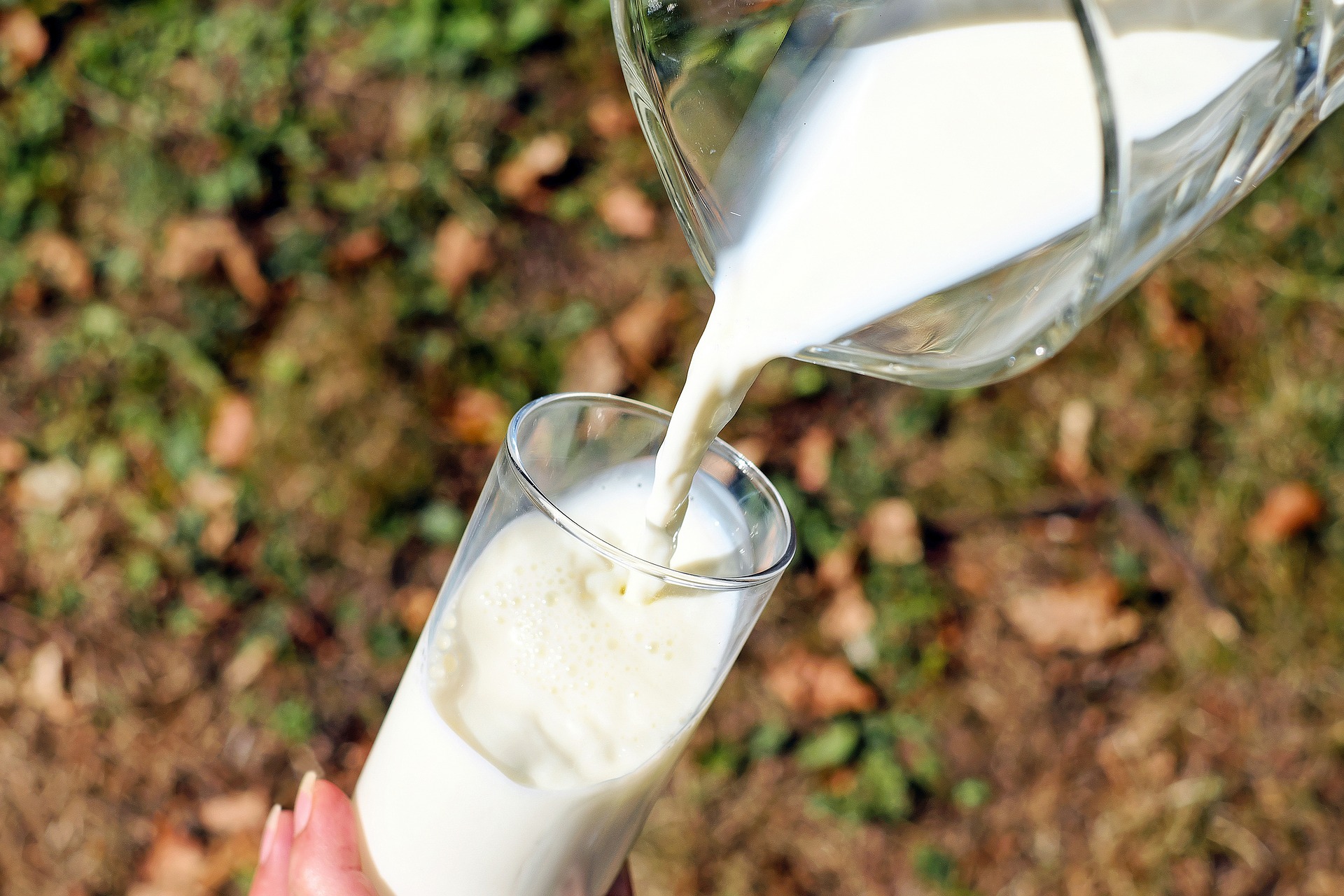As a child my go to drink was milk. I LOVED milk and drank it with every meal and then some and even continued drinking milk well into my late 40’s. For dinner every night, I would have a glass (or two). The past 15+ years, I converted to organic dairy. But one night at dinner about 12 years ago I truly had no desire to have a glass of milk and chose to drink water and have been doing that ever since. I don’t know why I stopped drinking milk, but I continue to use only organic dairy for all other consumption like cooking and baking.
A short while ago, I visited a local dairy farmer who raises their dairy cows grass fed (no hormones, antibiotics, etc). It was not homogenized so the cream was at the top and it was the most incredible cup of milk I tasted. Something to be said for doing things the way God created it to be done.
What is the issues about dairy in our current state?
I think pretty harmful and dangerous, especially to young children. We should be drinking grass-fed, raw, cultured dairy … if it is done right. There are studies that show dairy to be linked to allergies, asthma, digestive issues and other medical/health concerns. But why you might ask? Because what the farmers are doing to conventional dairy is not healthy.
According to Dr. Axe, he believes there are 5 reasons that conventional dairy is not good for you.
- Hormones
- Chemicals
- Feed
- Pasteurization
- Genetics
There was a study done by the Journal of Agriculture and Food Chemistry.
They found that there is an average of 20 different chemicals and medications found in your conventional milk (and conventional meat) supply. Those chemicals/medications are:
- Growth hormones
- Sex hormone medications
- Antibiotic drugs
- Antifungal drugs
- Steroids
- Painkillers
- Anti-inflammatory medications
- Heart Medications
Specifically the drugs found are:
- Niflumic Acid Anti-inflammatory/painkiller
- Mefenamic Acid Anti-inflammatory
- Ketoprofen “
- Diclofenac “
- Phenylbutazone “
- Naproxen “
- Flunixin “
- Pyrimethamine Anti-malaria
- Triclosan Anti-fungal
- Florfenicol Antibiotic
- Estrone Natural hormone
- 17B-estradiol Sex hormone
- 17a-ethinylestradiol Steroid hormone
Amazingly, the American Cancer Society stated that rBGH is the “man-made” hormone given to cows to increase milk production. Why do they need to increase milk production? Could it be the environment these cows are kept that causes stress, which in turn produces less milk? The dairy farmer that I visited takes great care to not put undue stress on their cows and keeps them sheltered from the heat of the sun during the hottest part of the day. But for some reason the conventional farmer would rather give their cows chemicals to produce milk. Figure that one.
What is rBGH?
It is a “recombinant bovine growth hormone” that is genetically engineered by Monsanto. To me anything produced my Monsanto needs to be avoided. There is an increase in milk production when these cows are given this hormone. But it also increases the risk of the cow’s early death and lameness. What does rBGH do to us humans? For one it increases the risk of IGF-1, which is insulin-like growth factor 1. It also increases the risk of developing breast, prostate and colon cancer in us humans. Not worth the risk to me. In young girls, it could cause them to begin their menstrual cycle at an earlier age (8-9 years old) and developing breasts much earlier than designed by God.
Over the years I’ve seen another changes in milk products. The shelf life is a couple of months. That baffled me. How could a quart of milk last until the end of October if I’m purchasing it mid to late August? Well it’s because the farmers are using a “high-heat” processing. What happens when we pasteurize and homogenize dairy … especially at high heat? We can denature proteins and turn good fats into bad fats.
The high heat can destroy enzymes such as phosphatase. This enzyme is important for bone health and lactase, which helps support digestion. Many of the B vitamins are also affected by high heat.
It is important to stay away from Ultra-pasteurized products.
They are heating the product to 280 degrees and it is destroying the important nutrients you derive from that specific food. Raw dairy is best health wise and as a second option, look for low-temperature processing. This processing is done at about 145 degrees. At this temperature level, there is only a small amount of nutrients being destroyed.
When milk is heated past 150 degrees, it becomes dangerous to your health and well-being. It is where enzymes die and proteins denature. Heating milk at …
115 degrees is basically raw milk. It is considered SAFE! Enzymes, minerals and vitamins are preserved.
145 degrees is considered low-temperature. It is considered SAFE! Protein stays intact at this temperature.
161 degrees is considered high-temperature. It is considered UNHEALTHY! It is killing enzymes and many of the healthy microorganisms. It also denatures the proteins. It is also more difficult to digest.
280 degrees is considered Ultra-Pasteurization. It is considered UNHEALTHY! It is killing the harmful bacteria in milk but also has destroying all the vitamins, nutrients and minerals.
Consider Drinking Raw Milk
Finding raw milk can be difficult and if you do find it you want to be sure the farmer is taking the necessary precautions to be sure the milk is pure and clean.
Do you know some people who cannot drink cow’s milk but have no problem with goat’s milk? Occasionally, I purchase goat’s milk to use in my coffee. I also purchase goat’s cheese and I enjoy it very much.
Do you wonder why a child who is breast feed cannot now drink cows’ milk? It’s probably because of the Beta Casein difference.
Breast, cows, sheep and goats milk all have two types of protein: whey and casein. Unfortunately, not all casein is the same. According to some research done by Dr. Keith Woodford, mother’s milk, sheep’s and goat milk contain A2 casein. Most cows’ milk contains A1 casein. Many people are allergic to A1 casein. It is known to be 26 times more inflammatory than gluten.
Why the difference?
According to Dr. Woodford’s book, Devil in the Milk, he states that in the past 2,000 years newer breeds of cattle mutated. There is a genetic flaw in the cows that produce the A1 casein.
Cattle that contain A2 casein can be found in Asia, Africa and the Middle East. These breeds are thousands of years old. This breed of cattle is called the Zebu. But there are some jersey cows that produce A2 casein. It is possible that there are other breeds as well but the farmer would need to do genetic testing to determine if their cattle produce A2 casein.
So to sum it up, if you are having problems with dairy, perhaps you should look at first if it is organic. This should be non-negotiable. Second, are the cows grass fed? Even some organic milk can be “grain-fed” cattle. Third, are you getting A2 casein protein in this milk? If not, consider switching to goat’s milk or removing dairy entirely from your diet. You can do an elimination diet for 30 days to see if there is a difference in the way you feel and the way your body responds. It might be worth a try.
If you are feeling overwhelmed by the whole process of food choices, consider working one on one with a Health Coach would help you take a step in the direction you desire your health to be in. I want to chat with you! We can chat about your health goals and we can determine a plan/strategy for you to begin.
Your Spiritual Life & Health Coach … Believing in You!

